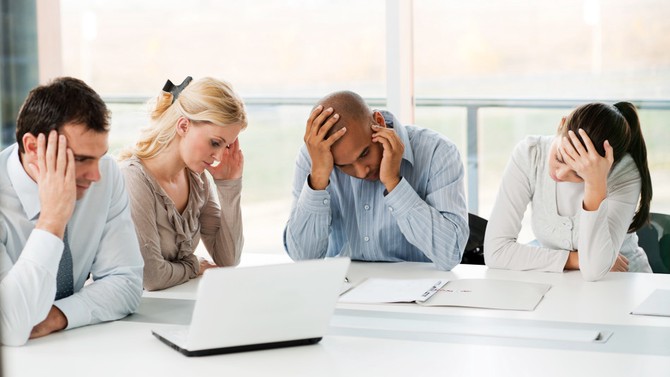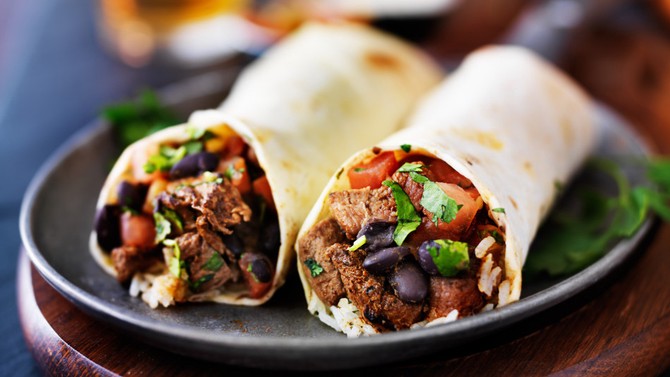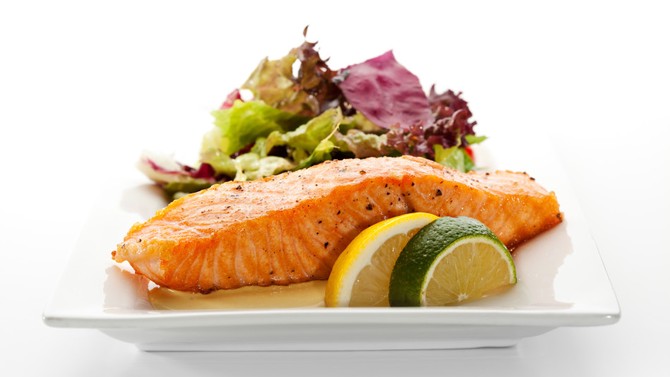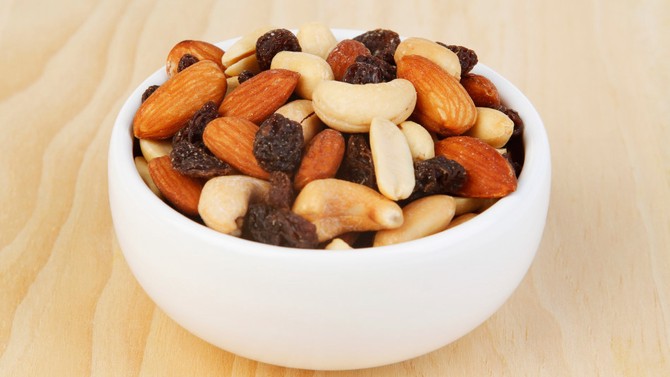7 Lunchtime Habits That Make You Gain Weight
You know to avoid making a meal of frozen yogurt and salt-and-pepper potato chips, but if your weight still keeps creeping up, take a look at these surprising mistakes.
By Emma Haak

Photo: FluxFactory/istockphoto
Thinking About Lunch (5 Minutes Before Lunch)
Why it packs on pounds: Because virtually no one makes good choices when they're famished.
The fix: Set an alarm one hour ahead of your break. According to recent research in the Journal of Marketing Research, when people placed their lunch orders at least 60 minutes before it was time to eat, they consistently ordered less caloric meals. (Of course, the smartest choice is to bring your own lunch—because if you brought leftover whole wheat pasta, that's what you're having.)

Photo: skynesher/istockphoto
You Always Schedule Meetings for Right Before Lunch
Why it packs on pounds: Yes, we're talking about stress eating, but a specific kind that you may not be aware of. Recent research in Neuron found that people exposed to a moderately stressful event before mealtime made less healthy choices than the calm control group, likely explained by the fact that brain scans revealed less activity in areas of the brain that govern our self-control. So, even if you have every intention of getting that lentil chili, even moderate stress might make it harder to stick to your guns when you smell pizza wafting through the air.
The fix: If you can, try to avoid stressful activities right before lunch. If that sounds like a pipe dream (we get it), keep healthy snacks on hand so you're not heading to lunch ravenous. Tamara Melton, RDN, spokesperson for the Academy of Nutrition and Dietetics, recommends eating something every three to four hours to keep hunger pangs in check, especially if you're an early bird who ate breakfast hours ago.

Photo: rez-art/istockphoto
Your Lunches Are Making You Hungrier for Dinner (But Not for the Reason You Think)
Why it packs on pounds: Large lunches don't just have excess calories; they may prime your brain for large dinners—at least that's what researchers found when they overfed both lean and obese mice; their results suggest that eating too many calories at once stops the production of a hormone that normally sends fullness signals to the brain. Which means you might not be satisfied by your lunch—and, chances are, you're going to gorge on whatever's around once you get home.
The fix: Stop eating when you feel comfortably full but not like you overdid it. Try to follow these guidelines from Lori Zanini, RD, spokesperson for the Academy of Nutrition and Dietetics: three to four ounces of a lean protein, such as grilled chicken or fish, a healthy carb like fruit or whole grains, one to two tablespoons of good fats, such as olive-oil based salad dressing or nuts, and as many vegetables as you want.

Photo: megaflopp/istockphoto
You Watch YouTube Videos at Your Cubicle
Why it packs on pounds: Unless you're that guy, you're probably viewing with headphones in, which drowns out the sounds you make while you eat. Being able to hear yourself chewing and crunching reduces the overall amount of food you eat, suggests research in Food Quality and Preference, likely because it makes you more aware of just how much you're eating.
The fix: Save the headphones and videos for short breaks when you're not noshing. Instead, do the thing you're always being told you should do and try to pay attention to your food while you're eating.

Photo: monkeybusinessimages/istockphoto
Always Eating with Other People
Why it packs on pounds: "We tend to match the people we eat with, in terms of how fast and how much we eat," says Melton. "And you probably don't want to be eating the same portion size as your male co-worker."
The fix: Not to sound antisocial, but try to dine solo more often than not. If you've got lunch dates scheduled, be mindful of how fast you're eating, and remember that just because one of your fellow diners is a card-carrying member of the clean-plate club doesn't mean you have to be, too.

Photo: Ryzhkov/istockphoto
You Don't Take 2 Minutes to Do This
Why it packs on pounds: Taking your to-go food out of the restaurant container and onto an actual plate helps you control your portion sizes, says Zanini. Why? A study in the Journal of the Academy of Nutrition and Dietetics found that 92 percent of the meals at both chain and local restaurants had more calories than you should be consuming in a single meal.
The fix: Grab a plate before you dig into take-out lunch (Zanini recommends a nine-inch dinner plate for maximum portion control). Save whatever doesn't fit on the plate for tomorrow's lunch. Need some guidance figuring out what's healthy take-out and what's not? Here are eight nutritionist-approved fast-food meals.

Photo: amanalang/istockphoto
You Give Yourself Carte Blanche on "Healthy" Choices
Why it packs on pounds: By now you know that eating an entire avocado in one sitting isn't the smartest choice if you're watching your weight (healthy fats, good. Three hundred-plus calories? Not so great.) But researchers from Cornell University recently found, in a series of studies, that people eat more than the recommended serving sizes of good-for-you foods because they think of "healthy" foods as less filling.
The fix: Before you go for your second helping of quinoa salad or another handful of walnuts, remind yourself of all of the good nutrients in that food. The study researchers found that when people were told about the most nourishing parts of healthy foods, they stopped thinking of them as less filling; and, doing the same may help you stop yourself from eating more.
Published 12/15/2016

